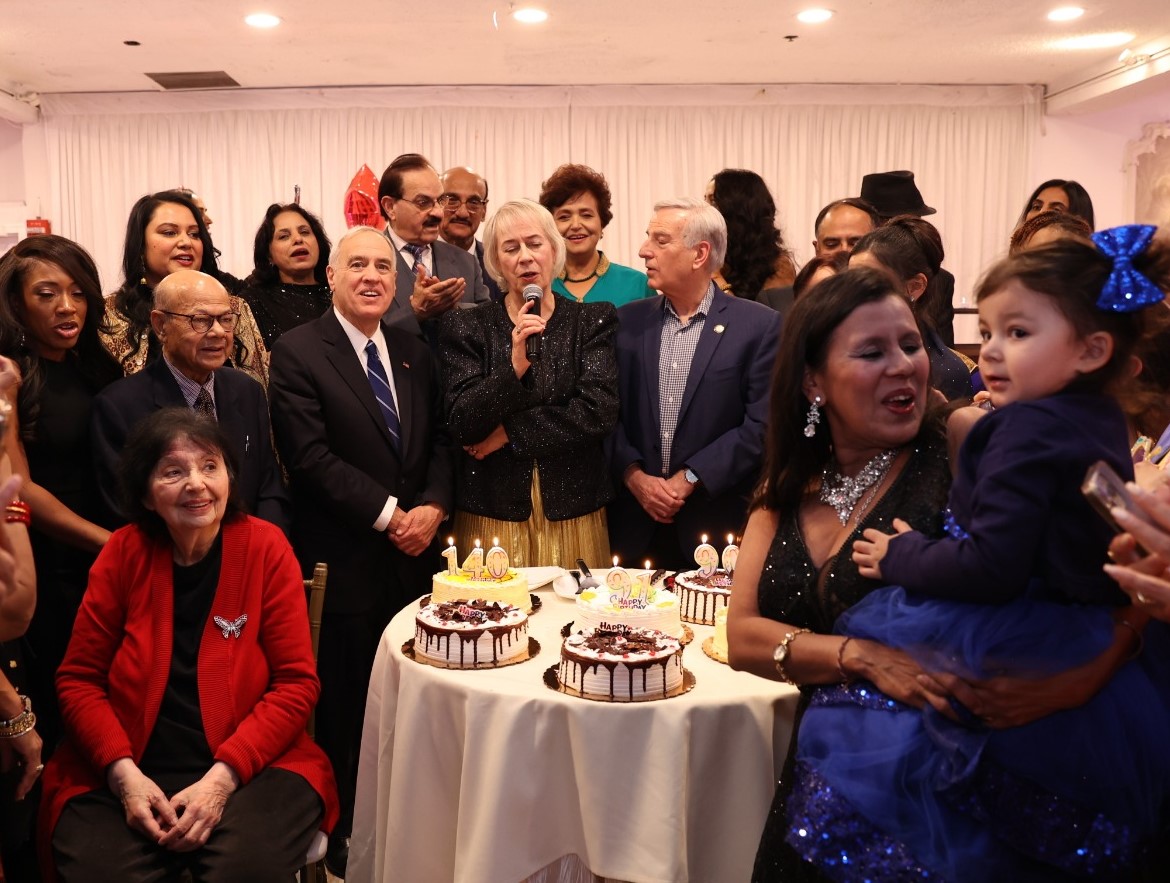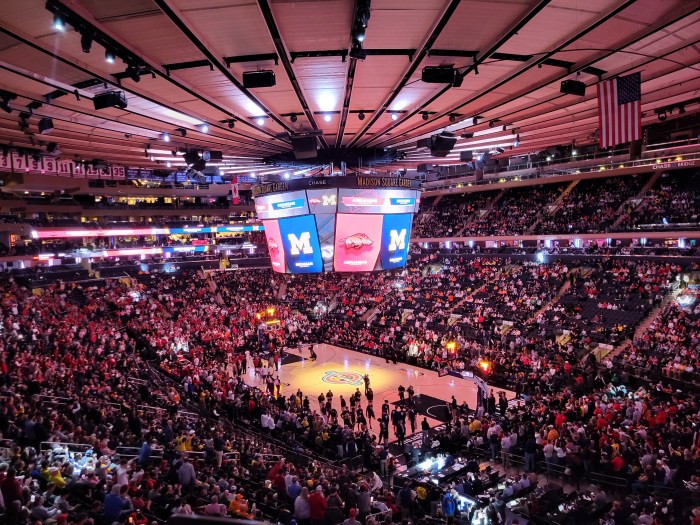By Elizabeth O’Brien
Department of Consumer Affairs Commissioner Gretchen Dykstra hopes to have a new nightlife licensing system in place before the city’s existing cabaret licenses expire on Sept. 30, 2004.
Dykstra told reporters last week that she would like to have a “seamless transition” to the proposed new system, where noise, unruly crowds and dirty sidewalks would replace dancing as the nightlife violations enforced by the Department of Consumer Affairs. Under the current cabaret laws, which date back to the 1920s, cabaret licenses are required for any business that has dancing and sells alcohol.
Dykstra said that the current law is often toothless when it comes to enforcing against noise and other problems that bother communities, yet punishes unlicensed establishments for allowing people to dance — even if the dancing itself is not disruptive.
“Here you have this funny disconnect — you have a license law that doesn’t address problems and doesn’t solve problems and yet you’ve got businesses that aren’t problems being caught in it,” Dykstra said last week.
Dykstra’s proposed nightlife license would be required for clubs, bars and restaurants with a capacity of at least 75 in residential neighborhoods and 200 in commercial neighborhoods that stay open after 1 a.m. and play music at 90 decibels or louder. Establishments would be able to choose the decibel level that they wish to maintain and would be required to hire sound engineers before they open for business to insure the premises are adequately soundproofed.
Under the proposed system, D.C.A. could issue violations if a club exceeds its chosen decibel level, or if it violates the noise code established by the Department of Environmental Protection for adjoining apartments. Before a nightlife license is granted, sound readings would be taken from adjoining apartments with the club’s system playing at full volume to insure the noise level is under the legal requirement.
Dykstra said the idea of putting sound meters in locked boxes inside clubs to make sure they don’t exceed their sound limit was considered, but it was thought that the boxes could be jimmied and the meters tampered with.
The Department of Consumer Affairs estimates the number of licensed nightlife premises will grow from the current 330 to between 750 and 1,000. The proposal also calls for increasing the number of inspectors to process applications and enforce the law, from two to 12. The inspectors, who would primarily respond to complaints, would be equipped with state-of-the-art sound meters.
Contrary to rumors, D.C.A. is not advocating for an earlier closing time for bars and clubs, Dykstra said. But violations could be issued if a bar or club doesn’t sweep the street by 30 minutes after closing time, or 6:00 a.m., whichever comes first. Violations for either noise or dirty sidewalks will start with fines of a few hundred dollars and can escalate to padlocking the premises.
While proprietors must make a “good-faith effort” to control their patrons as they enter and exit the club under the proposed law, D.C.A. will not hold owners responsible for noise outside the club. Regulating outdoor noise will remain the job of the police, Dykstra said. Dykstra said this was decided because, for example, there is the question of club-goers who exit and make noise, say, four blocks from the club; should the nightclub still be held responsible?
Some residents objected.
“That is outrageous — the police are totally inadequate in handling this problem,” said Jean Standish, an East Village resident for more than 25 years and a member of the Coalition to Save the East Village.
A community affairs officer for the Ninth Precinct, which includes the East Village, did not return a call for comment by press time.
Some critics have also objected that the proposed new nightlife law doesn’t change zoning, which regulates where dance clubs are allowed. The Department of City Planning is in charge of zoning.
Dykstra gave praise to Lower Manhattan City Councilmember Alan Gerson, who was an early advocate for reforming the cabaret law. Gerson had also insisted that the focus should be put on noise, not dancing. However, Gerson had stressed that changing zoning needs to be part of the proposal, so that dancing would be allowed in currently restricted areas. But Dykstra said she and Gerson recently had a “good talk” on the new nightlife law plan.
Consumer Affairs officials said they structured the proposed law to address problems that the agency could regulate on its own, and in doing so it consulted community boards, bar and club owners, sound engineers and other industry professionals.
In order for the proposed law to take effect, the City Council will have to vote to repeal the current cabaret law. There will also be public hearings later this year on the proposed law.
D.C.A. staffers are currently making the rounds of the community boards and presenting the plan. Dykstra admitted that a recent presentation to Community Board 3’s State Liquor Authority Committee went poorly and that the East Villagers were divided on the issue, partly because some own liquor-licensed premises themselves, she noted. On the other hand, Board 4 in Chelsea, where about two-thirds of the city’s cabaret licenses are currently held, was strongly in support of the change.
Under the new law, there would be a two-strikes rule under which an operator could be banned for life from having a nightlife license in New York City. D.C.A. may revoke the nightlife license if an indictment has been brought for any of the following 10 offenses on different days within two years within the establishment: homicide; assault; rape or attempted rape; possession of weapons; unlicensed sale of liquor; sale of liquor to minors; overcapacity; disabled sprinkler systems; exit signs or emergency lighting; blocked or locked exits; or padlocking twice by D.C.A. However, past track records won’t be considered if the new nightlife law is instituted.
“Everyone starts with a clean slate,” Dykstra said.
If the new law fails to win approval, the city will continue to be stuck with the cabaret law and D.C.A. will have to continue to enforce it, she said.




































